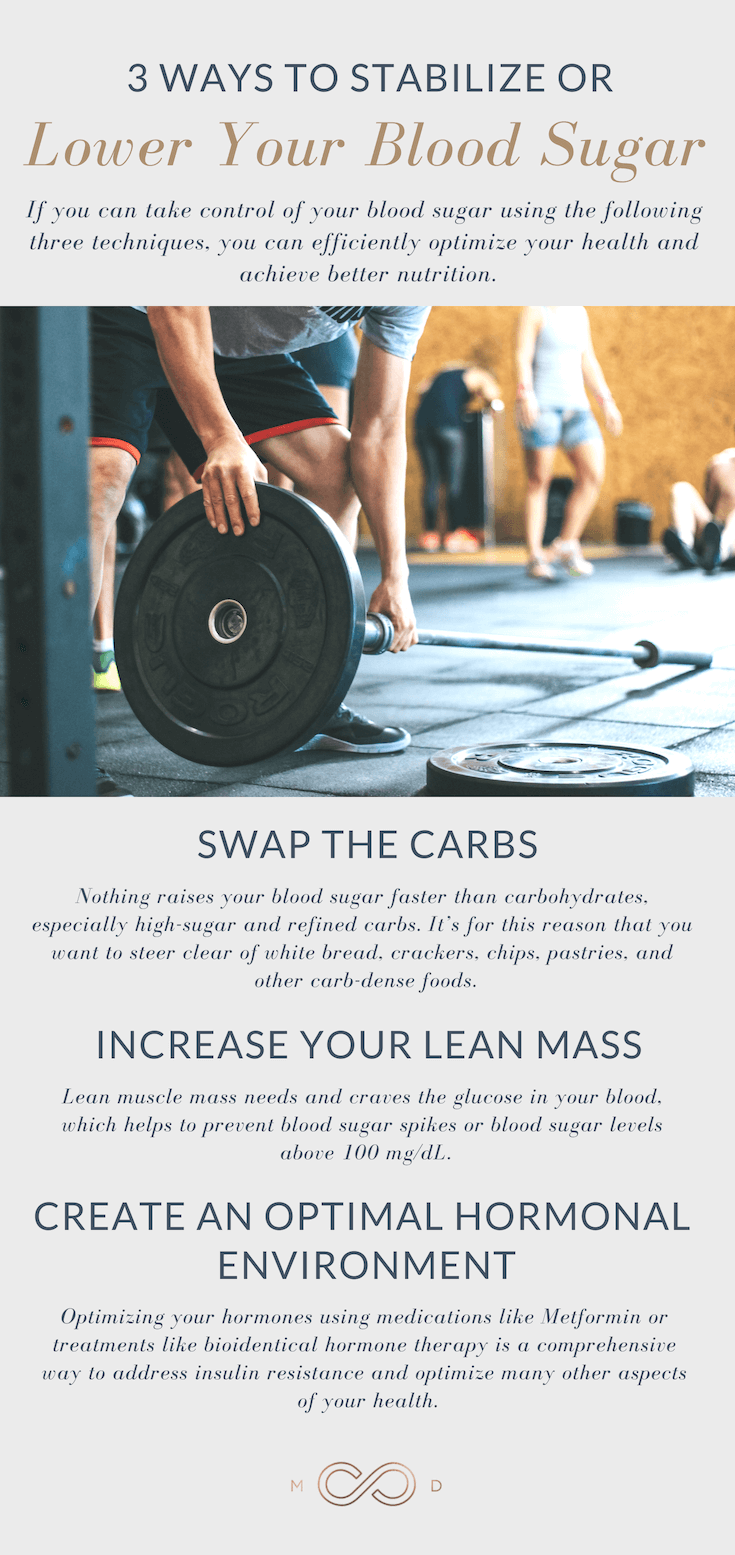Take just a second to search “healthy diets” on Google, and you’ll find thousands of websites claiming to have the magic formula for success.
Gluten-free, vegetarian, vegan, paleolithic, Mediterranean, ketogenic, and the list goes on and on. When it comes to nutrition, everybody claims to be the expert.
When anybody with a Pinterest account can claim to know the secrets to great nutrition, how can you sort through the noise to find legitimately valuable information?
The truth is, you don’t need to find the perfect diet, count every calorie, or adhere to a strict set of rules. The only thing you need to do is understand why popular diets work or fail. Once you understand the underlying mechanisms of successful dieting, you can adopt those practices into your life.
At its core, the Holy Grail of health isn’t what you think. It’s actually far simpler.
Lasting health starts and ends with balanced blood sugar.
Why Does Blood Sugar Matter?
Blood sugar is exactly how it sounds – the amount of sugar in your blood. Your body does need some healthy sources of carbohydrates and sugar to create energy, but it’s a fine line between sufficient and excessive.
Every time you eat a food or drink a beverage containing carbohydrates and sugars, they break down into glucose and travel directly into your bloodstream. All glucose remains in your bloodstream until a substance called insulin is deployed to transport the glucose into the cells throughout your body requiring energy. Your ability to control your blood sugar level is known as glycemic control.
This sugar-insulin-energy process is natural and essential to good health, but unfortunately it’s also highly threatened by our culture’s unhealthy lifestyle and eating habits. More than half of Americans live every day with high blood sugar.
If you allow your blood sugar levels to become out of control, the consequences become worse with every passing day. In addition to the weight gain you’ll experience, your poorly regulated or uncontrolled blood sugar levels will also increase your risks for:
- Obesity
- Heart attack and stroke
- Nerve damage
- Vision problems that lead to blindness
- Teeth and gum infections
- Kidney Damage
- Poor blood flow
- Slow and inefficient wound healing
You definitely don’t want to live a life dictated by these health problems, and your risk for developing them all can be prevented simply by taking control of your blood sugar.
Is Your Body Storing Or Burning Energy?
What happens to your food once it passes your lips? Every food that you eat influences your blood sugar level based upon its contents.
Healthy fats and lean proteins don’t contribute excess glucose into your blood, so they don’t send blood sugar levels surging. Refined carbohydrates and processed foods, on the other hand, immediately overload your bloodstream with excess glucose. As soon as your blood sugar creeps above 100 mg/dL, your body’s storage mechanisms are triggered to hold and store fat.
As a result, if you’re pre-diabetic or diabetic with blood sugar levels chronically over 100 mg/dL, your body never exits storage mode. This is basically the “anti-health” mode. Simply put, your body can’t function properly when your blood sugar levels are out of control. You’ll store energy (in the form of fat) instead of burning energy, and this excess will eventually lead to “diseases of abundance” ranging from weight gain and heart disease to stroke and diabetes.
How Easy Is It To Spike Your Blood Sugar?
Even if you’re a healthy non-diabetic, it’s all too easy to spike your blood sugar levels. Every human has about 5 liters of blood total. A non-diabetic averages about 1.5 teaspoons of sugar in his blood, while a diabetic has 2 teaspoons of sugar in his blood. It’s that tight of a window between healthy and unhealthy!

Yet a banana, a nutrient-rich fruit, contains 5 teaspoons of sugar. One bottle of soda has at least 9 teaspoons of sugar. You can imagine how much sugar a few slices of cake or couple cocktails add into your system. Your blood sugar spikes as soon as these foods and drinks place more glucose into your bloodstream, and your body begins to process the sugars to the best of its ability.
Though your body is designed to effectively release insulin that moves sugar out of your blood and into your cells for energy and into fat cells (adipocytes) in the form of triglycerides, poor eating habits or the presence of diabetes restricts insulin function and allows glucose to accumulate in the blood until your body can do nothing but store more and make more fat.
3 Ways To Stabilize Or Lower Your Blood Sugar
Forget the trendy diet fads. If you can take control of your blood sugar using the following three techniques, you can efficiently optimize your health and achieve better nutrition.
Swap Carbs For Foods That Don’t Raise Blood Sugar
The quickest way to stabilize your blood sugar is through your diet. Nothing raises your blood sugar faster than carbohydrates, especially high-sugar and refined carbs. It’s for this reason that you want to steer clear of white bread, crackers, chips, pastries, and other carb-dense foods. Opt for nutritious whole grains, veggies (that grow above the ground), and other carbohydrates that are low in sugar.
When you turn your attention away from dangerous carbohydrates, you can start to enjoy delicious whole foods that actually help to normalize your blood sugar instead of sending it surging:
- Healthy fats like avocado, almonds, coconut oil, salmon
- High fiber foods like fresh veggies
- Fresh herbs and spices
- Lean proteins like eggs, grass-fed beef, poultry, and Greek yogurt
Increase Your Lean Mass
You don’t need to become a bodybuilder, but by adding more exercise and weight-lifting into your regular routine, you can increase your lean muscle mass. Lean muscle mass needs and craves the glucose in your blood, which helps to prevent blood sugar spikes or blood sugar levels above 100 mg/dL.
Since your biceps and triceps will gobble up the glucose in your blood, you can enjoy that cheesecake cheat day without gaining weight or experiencing the symptoms of sky-rocketing blood sugar.
Create an Optimal Hormonal Environment
Insulin plays a key role in keeping your blood sugar under control. If your hormones are out of whack, they may affect your insulin production and your insulin response – which can dramatically effect how your blood glucose is processed. This is known as insulin resistance.
Optimizing your hormones using medications like Metformin or treatments like bioidentical hormone therapy is a comprehensive way to address insulin resistance and optimize many other aspects of your health.
It’s Not A “Diet”, It’s A Lifetime Of Healthy Choices
The word “diet” has become warped in our modern society. The true definition of a diet is actually, “the kinds of food that a person, animal, or community habitually eats.” We’ve tarnished the term “diet” by giving it a connotation of being temporary, unpleasant, and difficult.
It’s time to take back the original meaning of a diet. You don’t “go on a diet” to become healthy. You improve and optimize your diet – the foods you habitually eat – to make it sustainable, nutritious, and life-affirming. This starts and ends with balanced blood sugar!
If you’re not ready to tackle and normalize your blood sugar by yourself, get the support you need from Brentwood MD, Nashville’s premier concierge medicine practice. We will be your health and wellness advocates by providing hand-crafted care based on your unique goals and leading-edge science.
Call (615) 678-4638 to learn more about Brentwood MD and get the support you need to optimize your health permanently.

Dr. Aaron Wenzel is a concierge physician specializing in the care of fast-moving entrepreneurs, executives, and public figures in the Nashville, TN area. Dr. Wenzel’s diverse life experience and extensive training in family medicine, emergency care, nutrition, and hormone replacement therapies give him the unique platform to provide unmatched care for his patients.






